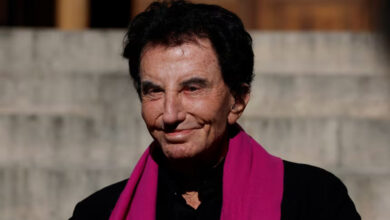There’s an unusually virulent strand of political surrealism surging through Egypt at the moment. I stress “unusually” because there is always some degree of surrealism to the politics of most countries, and especially those like Egypt (and pretty much everywhere else in the Middle East) whose political systems are one thing in theory and another in practice. Reconciling the two is never easy, and often takes some nimble rhetorical acrobatics. Much of this appears to be due to next month’s parliamentary elections, which may be worthy of a prize in the Experimental Theater Festival Cairo is currently hosting. And at the center of the debate is the question of whether raising Egypt’s practice of democracy–or lack thereof–is an infernal foreign plot.
Take Mufid Shehab, the minister of parliamentary affairs. This week he told the National Council of Human Rights that Egypt could not possibly envisage having foreign election monitors because that is something that is reserved for failed states, and in any case Egypt could not countenance what would amount to interference in its internal affairs. Nevermind that advanced democracies such as the United States and Germany accept election monitors, as well as powerful and not so democratic states such as China. And nevermind that growing numbers of civil society organizations and political forces have expressed support for the kind of perfectly ordinary election monitoring that takes place around the world all the time. Mr Shehab’s argument was so devastating that the National Council’s head, Moqbel Shaker, heartily agreed–to the dismay of most real human rights activists.
Or take Hassan Nafaa, the eminent member of the National Association for Change who, in these pages a few days ago, called on opposition forces to join him in rejecting a recent US Congress bill on Egypt. The bill calls for political reform, repealing the Emergency Law, holding free and fair elections, ending torture and for US President Barack Obama to make these issues a priority in bilateral relations. Unlike some of the statements on Egypt that Congress passed a few years ago, this bill seeks to impose nothing on the Egyptian government, does not make any conditions and mercifully stays clear of any linkage with Cairo’s Gaza policy.
This alone represents major progress compared to previous congressional calls that viewed Egypt either through the prism of Israeli interests or the alarmism of the Christian lobby. But Mr Nafaa could not tolerate this simple statement of support for positions he himself has espoused because the bill’s sponsors are pro-Israel and–you guessed it!–“it represents a form of interference in Egypt’s internal affairs.” Mr Nafaa may find a willing ally in that great friend of Israel, the US State Department, which has tried to make small changes in the bill to sweeten its language, perhaps in preparation for the unavoidable uproar at the Egyptian Ministry of Foreign Affairs, which in recent years has developed quite a knack in terrifying diplomats about “interfering in Egypt’s domestic affairs.”
But the contortions of an America trying to bring human rights into the conversation with its most important Arab client are eclipsed this week by France. That country, which after all saw the invention of the surrealist movement, is sending François Zimmeray, its ambassador for human rights, for a three-day visit to Cairo starting today. If you’re worrying that this will put the regime on its highest-level foreign interference alert, rest assured. Mr Zimmeray is not coming to Cairo to inquire about electoral freedoms, the 170-plus Muslim Brothers arrested over the last ten days as they prepared their campaign, or Amnesty International and Human Rights Watch descriptions of torture in Egypt as “systematic” or “endemic.” He will not be addressing the Khaled Saeed case, or the shooting of sub-Saharan African migrants at the Israeli border or the recent worrisome clampdowns on the media.
No, Mr Zimmeray has a much more urgent matter in mind, one that is affecting the human rights of many more Egyptians: anti-Semitism in the Arabic media. Will he find the time, after dealing with the imbecilic bigotry of some columnists and TV presenters, to discuss other human rights issues affecting the country? No, France’s diplomats informed rights activists in Paris a few days ago, because that could run the risk of being perceived as–wait for it!–interfering in Egypt’s internal affairs.
These diplomats are clever. They realize that criticizing police brutality or elections is intolerable to their Egyptian counterparts, but that discussing anti-Semitism is OK, precisely because it does not really impact the political situation in Egypt or show any solidarity with the Egyptian opposition whatsoever. It would be gauche at this point to recall that France’s president, Nicolas Sarkozy, once campaigned on the promise that “I will never be silent on human rights for the sake of our economic interests.” It would be unfair of me to suggest that France’s contracts for line three of the Cairo metro, or its hopes that its ailing national champion Areva might get a bite of the lucrative Dabaa nuclear power plant, could be an influencing factor. The French have just decided to stay away from difficult issues, or even–as they did last May when France lobbied Brussels to tone down the European Union’s response to Egypt's renewal of the Emergency Law–do their utmost to defend Egypt from the unbearable interference of strongly-worded public statements.
As they say in France, “Vive l‘indifference.”
Issandr El Amrani is a writer on Middle Eastern affairs. He blogs at www.arabist.net. His column appears every Tuesday.




